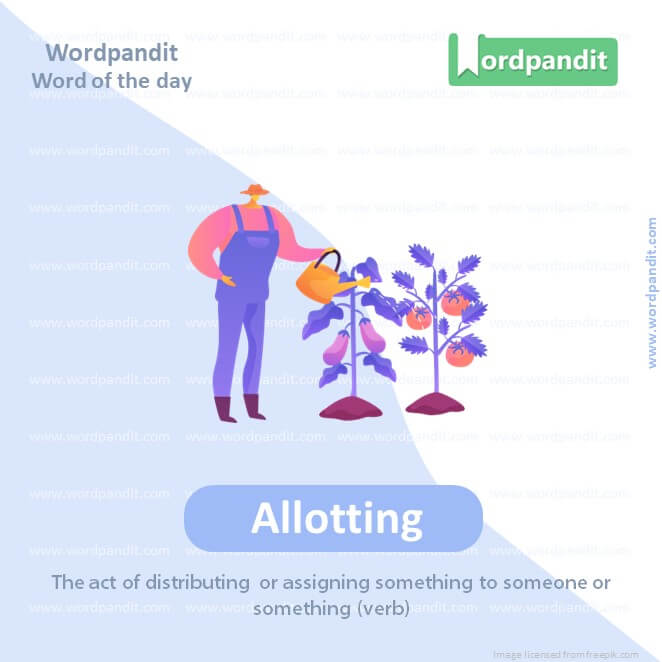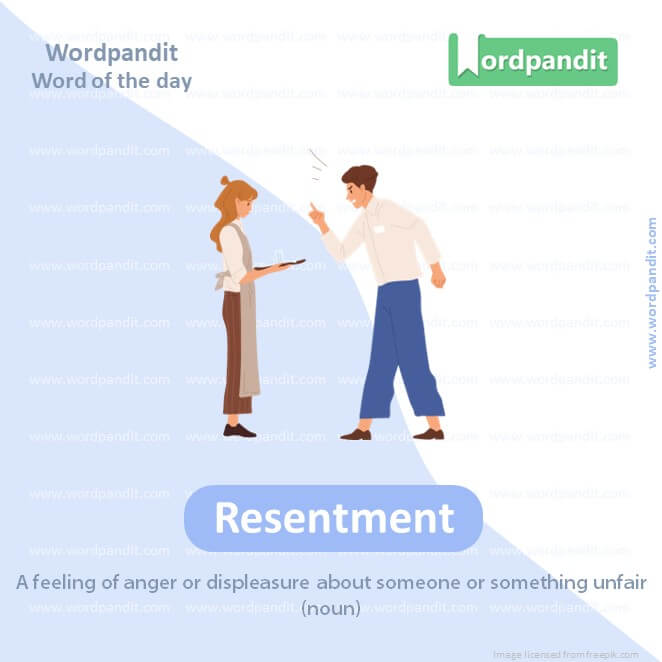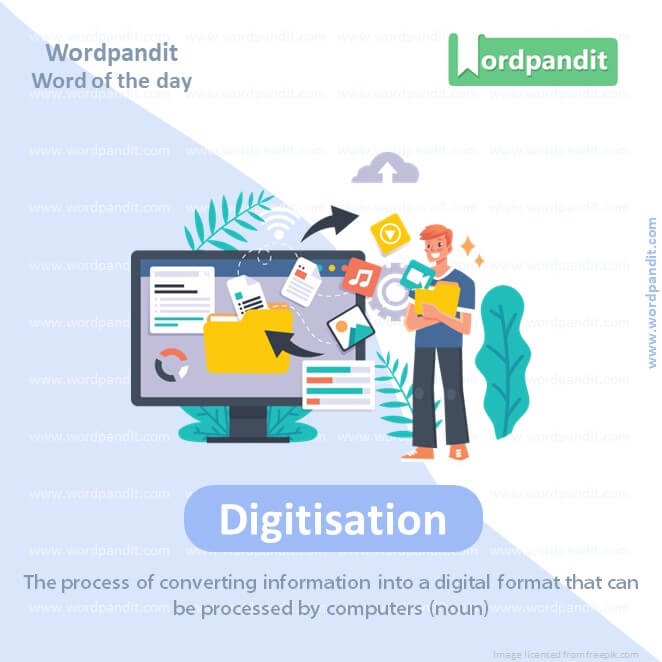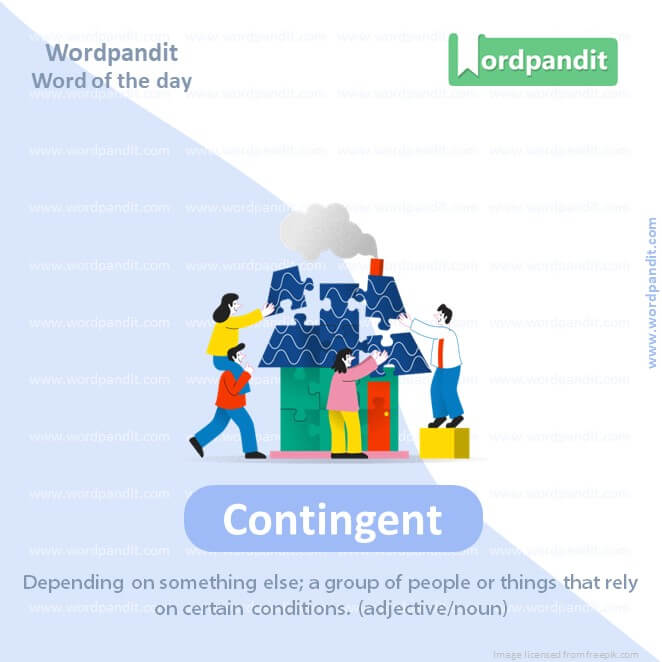Daily Vocabulary Words: List of Daily Used Words
Hi there. Welcome to this special section @ Wordpandit.
Our endeavour here is straightforward: highlighting important daily vocabulary words, you would encounter in The Hindu. This is your repository of commonly used words; essentially, we are posting a list of daily used words. Hence, this has significant practical application as it teaches you words that are commonly used in a leading publication such as The Hindu.
Visit the website daily to learn words from The Hindu.
WORD-1: Dispensing
CONTEXT: This would mean that, as in the real life example of dispensing currency notes to a bank customer/the common man, the SBI does not have any record of the person who purchased a specific bond.
SOURCE: The Hindu
EXPLANATORY PARAGRAPH: Think of when you have a candy jar, and you give out candies to your friends from it. “Dispensing” is like that; it’s giving out things to people, like candies, medicines, or even water from a machine.
MEANING: The act of distributing or giving out something, especially in controlled amounts (verb).
PRONUNCIATION: dih-SPEN-sing
SYNONYMS: distributing, administering, issuing, providing, supplying
USAGE EXAMPLE:
1. The nurse was dispensing medication to the patients.
2. In the office, there is a machine dispensing water and coffee.
3. The charity was dispensing food to the needy during the festival.
4. Automatic machines dispensing tickets can be found at the metro station.
WORD-2: Dragging
CONTEXT: Many proponents of the EBS have criticised the Court for not suggesting a ‘less worse’ method of political funding and dragging political parties to the “dark alleys” of black money.
SOURCE: The Hindu
EXPLANATORY PARAGRAPH: Imagine pulling a heavy bag on the ground that’s too hard to lift. That’s “dragging.” You pull it along behind you, and it moves slowly across the floor or ground.
MEANING: Pulling something along the ground or another surface, often with difficulty or effort (verb).
PRONUNCIATION: DRAG-ing
SYNONYMS: pulling, hauling, tugging, trailing, drawing
USAGE EXAMPLE:
1. The child was dragging a toy car on a string.
2. She was dragging her feet because she didn’t want to leave the park.
3. They spent the morning dragging the lake for the lost item.
4. He was dragging a suitcase behind him at the airport.
WORD-3: Specious
CONTEXT: How long can we accept the specious explanation that people get the government that they deserve? I think voters deserve better.
SOURCE: The Hindu
EXPLANATORY PARAGRAPH: Think of a story that sounds really good and true, but when you look closely, it’s not real or right. That’s “specious.” It’s something that seems correct at first but is actually wrong.
MEANING: Appearing to be true or correct, but actually being false or misleading (adjective).
PRONUNCIATION: SPEE-shuhs
SYNONYMS: misleading, deceptive, false, unsound, fallacious
USAGE EXAMPLE:
1. The argument presented by the politician was specious and easily refuted.
2. It was a specious claim that could not be backed up with facts.
3. The idea sounded good initially, but it was actually specious.
4. He offered a specious excuse for being late that nobody believed.

WORD-4: Allotting
CONTEXT: Mr. Naidu had quit the alliance over differences that cropped up on the agreement of allotting Special Category Status (SCS).
SOURCE: The Hindu
EXPLANATORY PARAGRAPH: Imagine you have a box of crayons, and you give some crayons to each of your friends. “Allotting” is like that; it’s sharing things out so everyone gets a fair amount.
MEANING: The act of distributing or assigning something to someone or something (verb).
PRONUNCIATION: uh-LOT-ing
SYNONYMS: allocating, distributing, apportioning, assigning, dispensing
USAGE EXAMPLE:
1. The teacher was allotting tasks to each student for the project.
2. They spent the morning allotting resources for the event.
3. Allotting time for exercise in your daily routine is important.
4. The government is allotting funds to improve public transportation.
WORD-5: Dissidence
CONTEXT: Mr. Naidu is now busy firefighting the dissidence within his party.
SOURCE: The Hindu
EXPLANATORY PARAGRAPH: Think about when you and your friends can’t agree on which game to play, and you say, “I don’t want to play this game, I want to play another!” That’s like “dissidence.” It’s when people show they disagree with something or someone.
MEANING: The act or process of expressing disagreement or opposition, especially against official policies or authority (noun).
PRONUNCIATION: DIH-suh-dence
SYNONYMS: disagreement, dissent, opposition, protest, nonconformity
USAGE EXAMPLE:
1. There was a wave of dissidence in the country against the new law.
2. The artist’s work was known for expressing dissidence against social norms.
3. Dissidence within the political party led to a split.
4. The government tried to suppress dissidence through censorship.

WORD-6: Resentment
CONTEXT: There is considerable resentment against the national party, and people blame it for not giving the SCS, completing the Polavaram project, non-operational Railway Zone in Visakhapatnam, and putting up a public sector like Visakhapatnam Steel Plant for sale.
SOURCE: The Hindu
EXPLANATORY PARAGRAPH: Imagine feeling really upset because someone took your favorite toy without asking. That feeling is called “resentment.” It’s when you feel angry or upset because you think something was unfair.
MEANING: A feeling of anger or displeasure about someone or something unfair
(noun)
PRONUNCIATION: ree-ZENT-mint
SYNONYMS: bitterness, indignation, irritation, displeasure, grudge
USAGE EXAMPLES:
1. He felt resentment towards his coworker for getting the promotion he believed he deserved.
2. There was a deep sense of resentment among the citizens over the increased taxes.
3. She couldn’t hide her resentment when her suggestion was ignored during the meeting.
4. Resentment grew in him after years of being overlooked for a raise.
WORD-7: Engenders
CONTEXT: Such a de-siloed accumulation results in sub-optimal legal and policy decisions, and engenders sub-par strategies at sectoral and national levels.
SOURCE: The Hindu
EXPLANATORY PARAGRAPH: Think about planting a seed in the ground, and then it grows into a plant. “Engenders” is like that; it means to cause something to start or grow, like a feeling or situation.
MEANING: To cause or give rise to a feeling, condition, or situation (verb).
PRONUNCIATION: en-JEN-ders
SYNONYMS: generates, produces, causes, provokes, creates
USAGE EXAMPLES:
1. The new policy engenders hope among the community members.
2. His controversial comments engendered a heated debate.
3. The novel’s plot engenders a sense of suspense and curiosity.
4. The lack of communication engenders misunderstandings in the team.

WORD-8: Galvanise
CONTEXT: Data exchanges are scalable ecosystems which galvanise multiple stakeholders.
SOURCE: The Hindu
EXPLANATORY PARAGRAPH: Imagine seeing your favorite superhero on TV, and it makes you want to be brave and do good things. “Galvanise” is like that; it’s when something makes you really excited and eager to do something.
MEANING: Shock or excite into taking action (verb)
PRONUNCIATION: GAL-vuh-nize
SYNONYMS: motivate, inspire, stimulate, energize, invigorate
USAGE EXAMPLES:
1. The coach’s speech galvanised the team to play their best game.
2. The charity event galvanised the community to come together for a cause.
3. The leader’s words galvanised the youth to participate in the movement.
4. The environmental crisis has galvanised global action and awareness.

WORD-9: Digitisation
CONTEXT: This reduces administrative burden, facilitates inter-sectoral integration, builds the safeguards to using/sharing NPD, and makes digitisation of civic functions more participatory in nature.
SOURCE: The Hindu
EXPLANATORY PARAGRAPH: Think about taking your paper drawing and putting it into a computer so you can see it on the screen. “Digitisation” is like that; it’s turning something from real, like a paper, into something you can see and use on a computer or phone.
MEANING: The process of converting information into a digital format that can
be processed by computers (noun)
PRONUNCIATION: dij-ih-tuh-ZAY-shun
SYNONYMS: computerization, digital conversion, electronic formatting, digital encoding
USAGE EXAMPLES:
1. Digitisation of medical records has improved healthcare services.
2. The library is working on the digitisation of its old manuscripts.
3. Digitisation has made accessing and sharing information much easier.
4. The museum’s digitisation project allows people to view artworks online.

WORD-10: Contingent
CONTEXT: It said it was ready to procure pulses, maize, and cotton at MSP, but this was contingent upon farmers guaranteeing crop diversification.
SOURCE: The Hindu
EXPLANATORY PARAGRAPH: Imagine if you can have a cookie, but only if you finish your dinner first. “Contingent” is like that; it means something will happen or be true only if something else happens first.
MEANING: Depending on something else; a group of people or things that rely
on certain conditions. (adjective/noun)
PRONUNCIATION: kuhn-TIN-jent
SYNONYMS: conditional, dependent, provisional, subject to, reliant
USAGE EXAMPLES:
1. His agreement to the deal is contingent upon the approval of the board.
2. The success of the event is contingent on the weather being good.
3. Her participation in the competition is contingent upon her recovery from injury.
4. The funding for the project is contingent on meeting certain conditions.
Vocabulary Daily
Language learning is a beautiful yet complex dance, where ‘vocabulary daily’ connote the integral beats. These everyday words form the essence of most of our conversations and are the cornerstone of effective communication. However, a methodical approach is required to efficiently learn ‘vocabulary daily’.
One key approach to learning ‘vocabulary daily’ is consistency. Engaging with a few words every day consistently fosters better understanding and recall than sporadic cramming sessions.
Interactive tools can add a touch of excitement and ease to mastering ‘vocabulary daily’. Flashcards, word of the day calendars, language learning apps can make the learning experience fun and fruitful. These tools not only introduce new words but often provide a context of use, aiding your understanding.
Making ‘vocabulary daily’ a part of your daily life is a surefire success strategy. Incorporating these words into day-to-day conversations, writing, or social media interactions greatly enhances retention and usage. It also allows you to witness firsthand the impact of a rich vocabulary on the clarity of expression.
To effectively grasp ‘vocabulary daily’, always keep a learner’s curiosity. Explore books, news articles, music, and podcasts in the respective language. This exposure helps in absorbing the words in a real-world context, thus building a robust bond with ‘vocabulary daily’.
In conclusion, understanding ‘vocabulary daily’ is an ongoing process that necessitates consistency, interactive learning, practical application, and a learner’s curiosity. By following this comprehensive approach, the task of mastering ‘vocabulary daily’ becomes less of a chore and more of an enriching journey that can lead to eloquent and effective communication. So, step into the exciting world of ‘vocabulary daily’ and let it colour your language learning adventure with shades of clarity, confidence, and joy.







